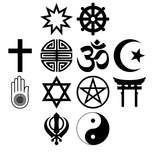
Like many people, I found that I was unable to reconcile myself with many of the tenets of mainstream organized religion, specifically, Christianity. I found too many contradictions and inconsistencies in the teachings I was exposed to during Sunday school and church sermons. So I began my search. I looked at different sects of Christianity, Buddhism, Ba’hai, Hinduism, Jainism, the list goes on. I found it very interesting to learn about the different religions and their beliefs, but though I found many of them had elements that felt right, none of them spoke to me saying “this is your path”.

When I started looking into paganism, it felt like I’d come home. This is where I belonged! And yet, there were still things that just weren’t lining up for me. There were so many different pagan paths, which one was the one for me?
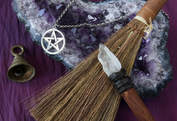
In the first half of the 20th century, a man named Gerald Gardner claims to have been initiated into an ancient pre-Christian witch coven. He is generally credited with reviving the religion by borrowing ideas from different sources such as Freemasonry and Aleister Crowley to enrich the coven’s rituals. Thus began the Gardnerian tradition of Wicca, one of the most well known traditions today. It is a mystery religion, requiring initiation and years of study to achieve the 3rd degree.
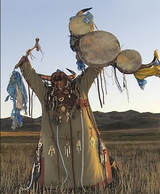
Shamanism is a very old religion, dating back at least 10 000 years and quite possibly much longer. The word shaman is thought to come from Siberia, and the literal translation is “he/she who knows”. Shamanists believe that there is a world full of both benevolent and malevolent spirits. The shaman is the bridge between this world and the spirit world. By altering their state of consciousness, they can travel to this other world and interact with the spirits.
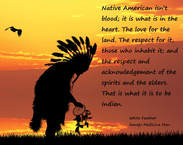
Everything is sacred to the Native American culture, the land, the animals, the plants, everything. There is a purpose and a lesson to be learned in all experiences and there are totems and spirits to help guide the way. They recognize that humans are a part of nature, connected to all things. They honour and respect the land and all who live on it.
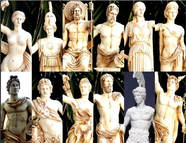
There are polytheists, who look to multiple gods, often from specific cultural pantheons.
Hellenism honours the ancient Greek gods. This includes the Olympians, nature deities, chthonic deities and the heroes. It is mostly a devotional type of worship, exchanging gifts and offerings for the blessings of the gods.
The Germanic gods are honoured by Heathens, Asatruar and Odinists. The main difference between the three seems to be which subset of gods are worshipped.
Kemetics look to the gods of ancient Egypt. I could list hundreds of other pantheons, but these are the main ones that I looked into during my search.
Hellenism honours the ancient Greek gods. This includes the Olympians, nature deities, chthonic deities and the heroes. It is mostly a devotional type of worship, exchanging gifts and offerings for the blessings of the gods.
The Germanic gods are honoured by Heathens, Asatruar and Odinists. The main difference between the three seems to be which subset of gods are worshipped.
Kemetics look to the gods of ancient Egypt. I could list hundreds of other pantheons, but these are the main ones that I looked into during my search.
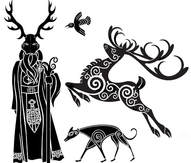
Ancient Celtic Druids were the eminent professionals of their time. Mostly remembered as religious leaders, they were also lawyers, judges, historians, archivists, doctors and political advisors. Most modern Druids focus on promoting harmony and reverence for the natural world and practice ancestor worship.

Pantheism is the belief that the Universe is God, therefore God isn’t a creator, God simply IS. Because all things are God, everything is connected and should be considered one entity. A human may be different than a mountain or a tree, as a hand may be different from a leg or a brain, but ultimately all are part of a greater whole. Unlike many religious belief systems, pantheists embrace science. If God and the universe are the same thing, then understanding the universe is the path to understanding God.
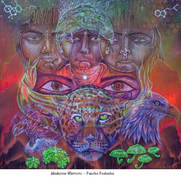
Animism proclaims that you’re not the only being with a soul. Everything has its own spirit and is alive in its own way. Animals, plants, rocks, rivers, forests, hurricanes; all possess their own spiritual essence. Humans are neither above nor apart from Nature, but are simply a part of it. If you see similar beliefs in other religions, I'm not surprised. It is the world's oldest belief system, and some think that all current religions and beliefs spring from this ancient well.
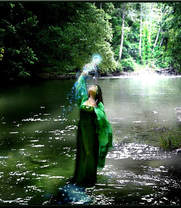
Witchcraft is a considered more of a practice than a religion. Those who practice witchcraft use herbs and cast spells to achieve their goal; calling upon deities and spirits isn’t necessary. It is possible to be a member of just about any religion and still practice witchcraft. Witches can be male or female, and there are many different types:
- Secular witches understand that the materials and energies used in practice come from the natural world, but generaly don’t consider them divine or spiritual.
- Ceremonial witches are all about the details and the rituals.
- Dianic witches focus on feminism. No males need apply.
- Green witches connect with Mother Earth and works with Nature’s energies.
- Hedge witches venture into the Otherworld to communicate with the spirits.
- Kitchen witches take a more practical approach to their rituals and magick, and like to make their homes and surroundings sacred spaces.
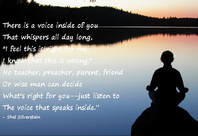
I’ve said before, there are so many different traditions in paganism, it may take a while to find your own. And if you found yourself drawn to more than one, as I did, then I encourage you to research and learn and above all else listen to yourself. You may identify as one of these types of pagan, or with a tradition I haven’t mentioned, or you may choose to identify with none of them. Though some may disagree, I don’t feel that there is any right or wrong here. There is only what is right for you.
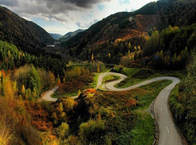
So which path have I chosen? I am an Eclectic. I call myself a pagan and I've also called myself a witch. I don’t subscribe to any one tradition, instead I have built my own belief system stemming from my research into other paths. I’ve learned to listen to my heart and soul, to incorporate pieces of other traditions that resonate with me, and to add my own contributions as the need arises. My path may have a few more twists and turns than some, but that’s what makes it mine.
So which path have I chosen? I am an Eclectic. I call myself a pagan and I've also called myself a witch. I don’t subscribe to any one tradition, instead I have built my own belief system stemming from my research into other paths. I’ve learned to listen to my heart and soul, to incorporate pieces of other traditions that resonate with me, and to add my own contributions as the need arises. My path may have a few more twists and turns than some, but that’s what makes it mine.
Whatever road you walk, may your journeys bring you much joy and fulfillment!
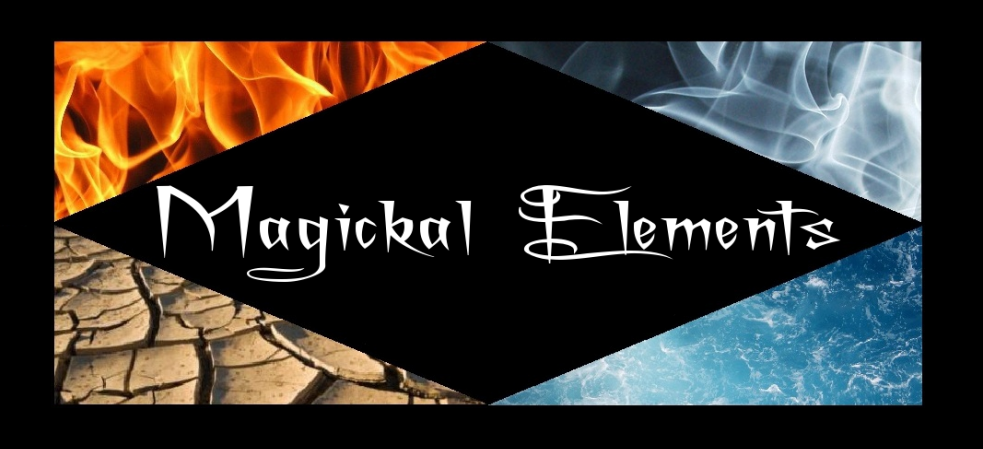
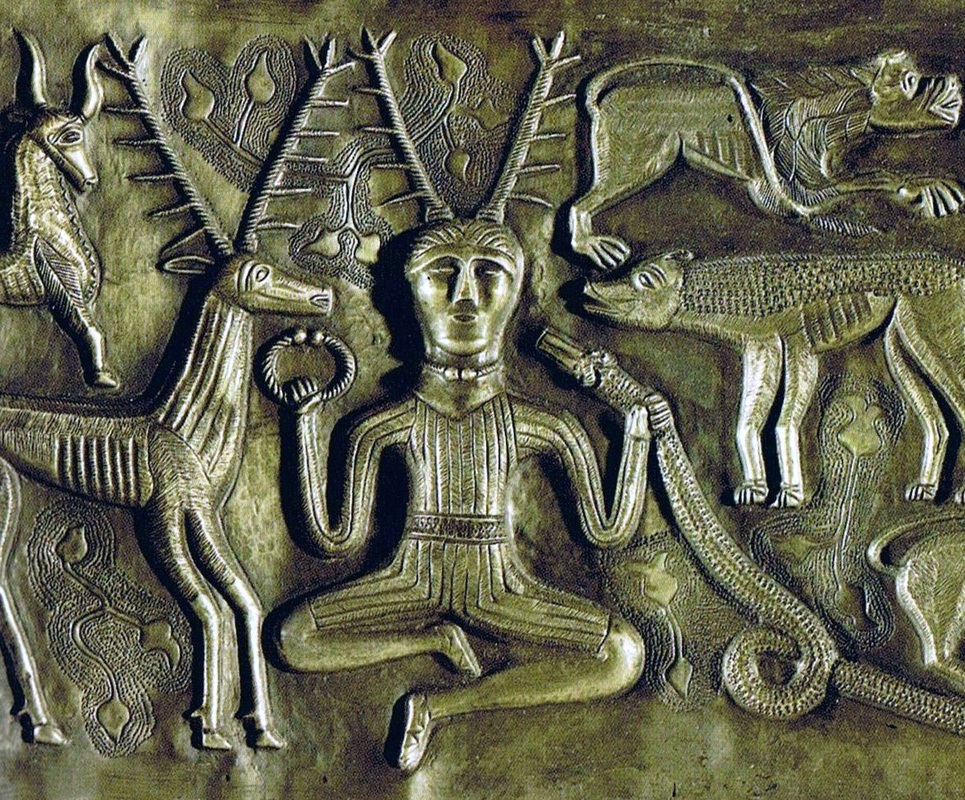
 RSS Feed
RSS Feed
